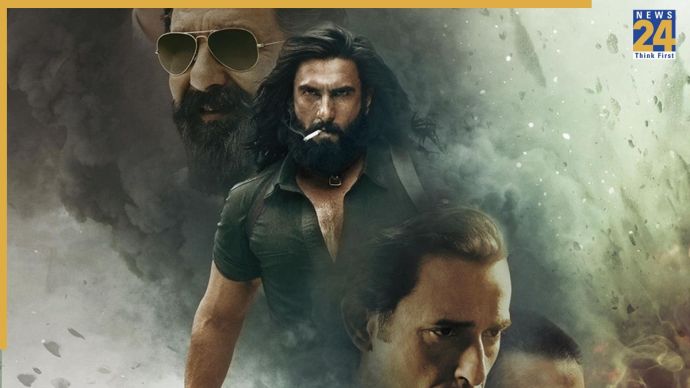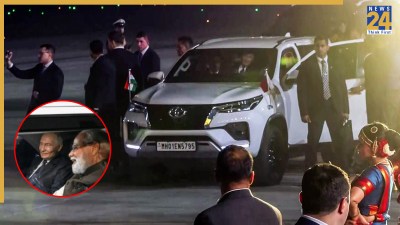How will the killing of Hezbollah chief Hassan Nasrallah impact India and her political and economic interests in the Middle East? Nasrallah’s killing can be compared with the killing of Al Qaeda chief Osama bin Laden in the Pakistani city of Abbottabad. It will have a greater impact than the killing of the commander of the Quds Force in the Islamic Revolutionary Guard Corps (IRGC) of Iran, Qassem Soleimani in 2020. His killing can also be compared with the assassination of Hamas Chief Ismael Haniyeh this year.
Killing Of Hassan Nasrallah To Change Political Dynamics
The killing of Hezbollah’s General Secretary for 32 years is most likely to change the political dynamics of the entire Middle East and West Asia. It may influence the politics of not only those countries that are the main stakeholders of the crisis but also those who may not have a major stake in the area, like India.
Indian Economy Depends On Peace In Middle-East
With about nine million citizens living in the Middle East, who send about $125 billion annually, the Indian economy greatly depends on the area’s peace and tranquility. India purchased crude oil and natural gas worth $124 billion in 2024, more than 51% of this massive bill was paid to the members of the Gulf Cooperation Council.
Also Read: Explained: Is Israel-Hezbollah War Imminent After Hassan Nasrallah’s Killing? How Will U.S. Respond?
Will Investment In India Be Hit?
The countries of the Middle East invested about $40 billion in 164 private deals in five years culminating in 2023. It does not include billions of dollars promised by Saudi Arabia and the United Arab Emirates. India is concerned that any disruption in the supply chain may push the oil bills up dry the investment, harming its economy. A full-scale war between Israel and Iran may also force the Indians living in the Middle East countries to return in big numbers and this may also hit the Indian economy, though it will not dry up completely.
India-Iran Ties Under Pressure
India-Iran business relations were severely damaged due to the economic sanctions imposed on Tehran by the US and the EU. Though Iran and India are working on developing Chabahar port and India has promised to invest heavily in the project, the ties are not at their best.
Civil Nuclear Deal With US Hit India-Iran Relations
Though India refused to buckle under the pressure of the economic sanctions on Iran, Tehran was upset over its failure to influence Washington or any of the EU nations, not even those who have good relations with New Delhi. The bilateral relations got further beatings after India signed the civil nuclear deal with the US and coming under its pressure it did not back Iran on the issue of its nuclear proliferation programme for civilian purposes, as it claimed.
Iran Condemns India
Tehran joined the Muslim ‘Ummah’ to condemn New Delhi after it implemented the Citizenship Amendment Act and the National Register of Citizens. Tehran went to the extent of criticizing India at the Organisation of Islamic Cooperation and the GCC for abrogating Article 370 which guaranteed the special status of Jammu and Kashmir.
Earlier Iran always defended India strongly on the Kashmir issue on all international forums including the OIC, the GCC, and the United Nations. Tehran joined Turkey and Pakistan to slam India on these issues, much to the chagrin of New Delhi.
Ayatollah Khamenei Criticises India
India was shocked when the supreme leader of Iran, Ayatollah Khamenei raised the “suffering” of Muslims in India, Gaza, and Myanmar, and urged for solidarity among the members of the community across the world. In a post on social media platform X, he wrote, “We cannot consider ourselves to be Muslims if we are oblivious to the suffering that a Muslim is enduring in #Myanmar, #Gaza, #India, or any other place.”
India Hits Back At Iran
Responding to the comment, New Delhi hit out at Iran. The Ministry of External Affairs said in a statement that the comments were “misinformed and unacceptable.” It said in a statement that countries commenting on minorities are advised to look at their record before making any observations about others.
India-Israel Tango Upsets Tehran
A full-scale war between Iran and Israel will create further problems for India. While India backs the Palestinian cause and advocates the two-nation solution suggested by the UN, its relations with Tel Aviv have improved significantly after the BJP under Narendra Modi came to power.
India Condemns Hamas Attack
After the Hamas attack on Israel on October 7, 2023, in which more than 1,200 people were killed and 250 were taken hostage, PM Modi took to X to say, “Deeply shocked by the news of terrorist attacks in Israel. Our thoughts and prayers are with the innocent victims and their families. We stand in solidarity with Israel at this difficult hour.”
Iran Loses Grip Over Middle-East Theatre
After the killing of Hassan Nasrallah, the man who transformed Hezbollah into a ruthless militant organization, a strong militia, and a political party that controls the government of Lebanon, Tehran will certainly lose its clout. Even if the militant outfit manages to stand on its feet with increased Iranian support, Tehran will certainly lose its grip over the Axis Of Resistance, comprising Hamas, Hezbollah and Huthis.
Also Read: Lebanon Pager Explosions Signal New Shift In Warfare: Is Israel’s Mossad Preparing Cyber Strikes With Unit 8200?
Iran is left with Hezbollah which has lost its General Secretary for 32 years and Hamas, which is in ruins, licking its wounds. When Tel Aviv rained its thousands of missiles on the Gaza Strip and killed more than 40,000 Palestinians, mostly innocent civilians, including women and children, the Muslim Ummah was silent and none of the Arab countries, including those from the GCC came out against the Jewish nation and stood for the victims.
It signals a paradigm shift in the political dynamics and real politick of the Middle East, which is leaning towards Israel. India will find it easier to adjust to the new realities where Tehran will not have a hold over the situation.













